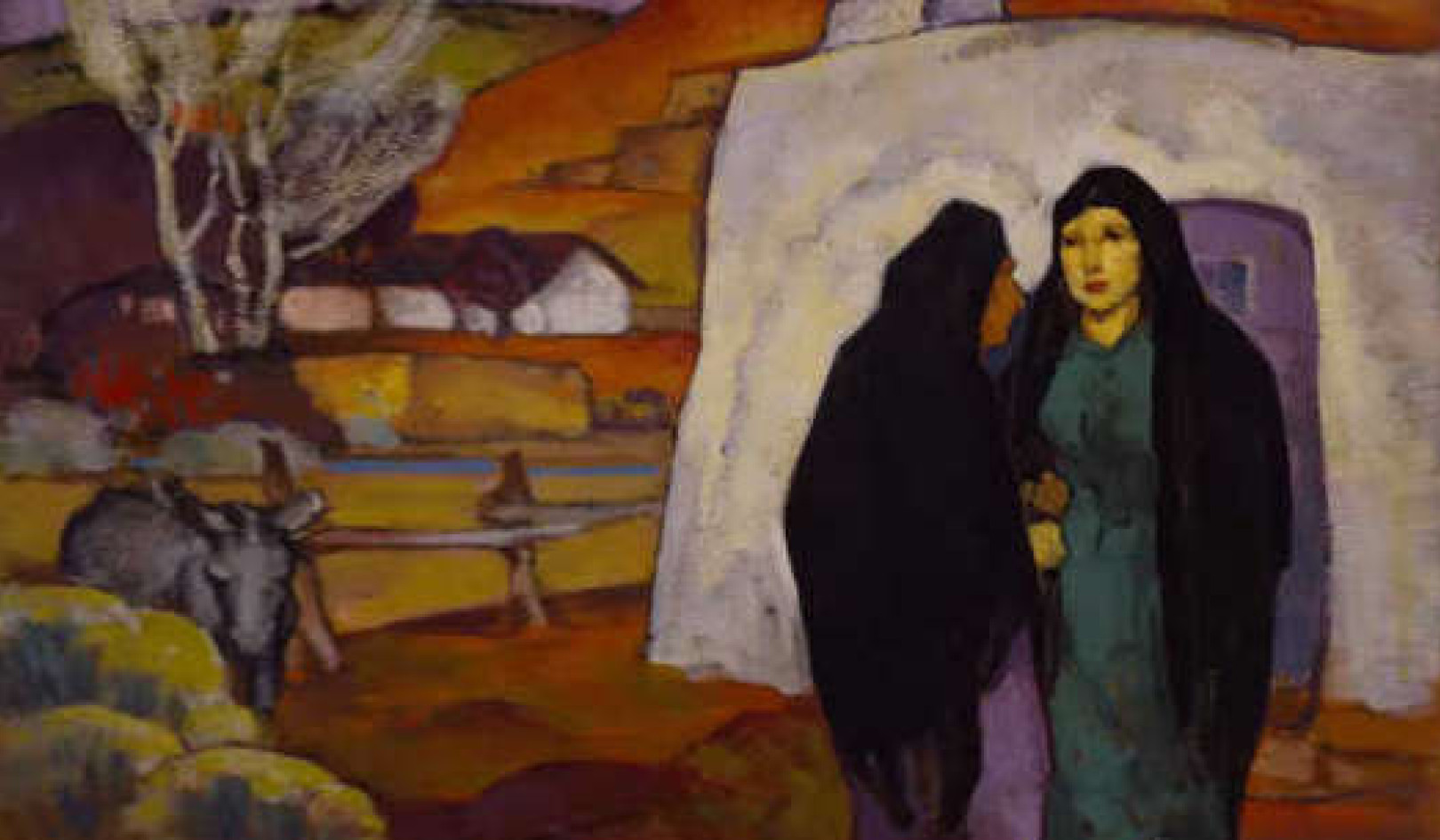
In European mythology, this specific process of self-discovery (meeting the shadow) is usually depicted as the hero literally descending into the underworld and meeting the dead. Whether it’s in The Odyssey or The Divine Comedy or the Harry Potter tales (in which Harry frequently visits past events), the first part of this process involves going into a netherworld that allows the traveler (and the reader) to think differently about the nature of the everyday world.
This is a very ancient pattern. One of the earliest recorded myths we have, from ancient Sumer, tells of the supreme goddess Inanna descending from her realm to the underworld, the land of death, which is ruled by her enemy. This is no ordinary enemy, though, since it is her sister Ereshkigal, whom she fears will kill her. On the way to find her, Inanna passes through seven gates, and is at each one forced to shed some of the regal finery of which she is so proud, until she is naked. Inanna’s descent seems to involve the stripping away of the ego.
Meeting the Shadow: Descending Into the Depths of the Self
We’ll be looking at a more recent story here, specifically Dante’s Divine Comedy. It is to some extent representative of all the stories of descending into the depths of the self and why this might be spiritually necessary. Written between A.D.1308 and 1321, it has moved countless generations of readers — a sure sign it may have something useful to tell us.
Of course, Dante’s story is extremely dramatic: a descent into Hell, then the ascent to Heaven. I’m not suggesting we all have to go through something as drastic, although those who have undergone disasters have often come through, renewed, on the other side feeling that they have been through hell. Many consider themselves blessed to have had such difficulties.
Looking Within: Discovering Dante's Inferno?
What I’d like you to notice is that Dante’s story tells us in detail what we can expect to find when we look inside ourselves. Some of what we find may not be very pleasant, and we’ll come up against all those selfish ego tendencies we all have.
Dante’s message is clear, though: he asks us to observe what the tendencies are that keep these poor souls stuck in Hell. When we see these failings in others, we can know them, avoid them, and as we learn from them we will grow in compassion. For we will see that these faults lie within each of us, too. Only then can we move beyond these ego-longings that will stop us from experiencing synchronicity.
In the poem, Dante is led through Hell by the poet Virgil and witnesses an array of suffering sinners who are truly ghastly. Again and again, Dante meets sinners who have chosen the selfish way forward, and in Hell, their punishment is that they have to repeat that choice forever.
The Spiritual Journey: Discovering Gentleness & Love
 As Dante proceeds, he leaves the realm of men and sin far behind, and under the care of Beatrice he finds his way toward Heaven and the Virgin Mary. Whether we believe in a Christian worldview or not, the psychic process Dante describes is important. Dante, we notice, is now in a more female world. Virgil, the male poet, has guided Dante, the male poet, through Hell and through Purgatory, but Virgil cannot take Dante all the way on this spiritual journey: the pure saintly Beatrice, a woman, is the only one who can guide Dante forward now.
As Dante proceeds, he leaves the realm of men and sin far behind, and under the care of Beatrice he finds his way toward Heaven and the Virgin Mary. Whether we believe in a Christian worldview or not, the psychic process Dante describes is important. Dante, we notice, is now in a more female world. Virgil, the male poet, has guided Dante, the male poet, through Hell and through Purgatory, but Virgil cannot take Dante all the way on this spiritual journey: the pure saintly Beatrice, a woman, is the only one who can guide Dante forward now.
To spell this out simply: the idealized virginal Beatrice leads the poet to the ideal female, the pure mother symbol of the Virgin Mary.
What Dante learns after understanding the destructive part of himself and rejecting it, leaving it behind in Hell, is that only then can his real salvation be found, in this opposite-sex world of gentleness and love.
The Hero's Journey: From Punishment to Compassion & Unconditional Love
He’s moved from a realm of punishment to a realm of compassion, and eventually one of unconditional love. He has met the opposite of himself, the female anima, if we use Jungian terms, and has allowed it to transform him. The language is religious, the metaphor universal.
So far, then, we can see that descending into the self means, first of all, finding the limitations of the ego-world and not giving in to fear when we see the ego-world won’t supply all our needs. It means stepping outside ourselves.
Second, it also involves taking a moral inventory of ourselves and seeing how our ego claims can lead us toward inauthentic and selfish living.
The Hero's Reward: Embracing Compassion & Love
We must acknowledge the lawless parts of ourselves and accept that there is real energy in these urges. If we accept these urges we can use this energy without giving in to their destructive aspects. This means that, instead of responding with selfishness, we mobilize compassion that we perhaps didn’t know we had, and we respect all human beings just a little bit more as a result.
Compassion always means that we love others because we see that we are exactly as they are — even if they have gone farther along that destructive path than we have. We are not different.
Third, the tales seem to show us that we have to let go of wanting to be right so we can embrace the softer aspects of ourselves that we so often ignore or discard. This quality is love in its highest form, which lets us live confidently in the flow of creation.
This article was excerpted with permission from the book:
 The Path of Synchronicity: Align Yourself with Your Life's Flow
The Path of Synchronicity: Align Yourself with Your Life's Flow
by Dr. Allan G. Hunter.
Reprinted with permission of the publisher, Findhorn Press. www.findhornpress.com
Click here for more info and/or to order this book on Amazon.
About the Author

Allan G. Hunter was born in England in 1955 and completed all his degrees at Oxford University, emerging with a doctorate in English Literature in 1983. In 1986, after working at Fairleigh Dickinson University's British campus and at Peper Harow Therapeutic Community for disturbed adolescents, he moved to the US. For the past twenty years he has been a professor of literature at Curry College in Massachusetts, and a therapist. Four years ago he began teaching with the Blue Hills Writing Institute working with students to explore the memoir and life-writing. As in all his books, his emphasis is on the healing nature of the stories we weave for ourselves if we choose to connect to the archetypal tales of our culture. For more, see http://allanhunter.net.



























